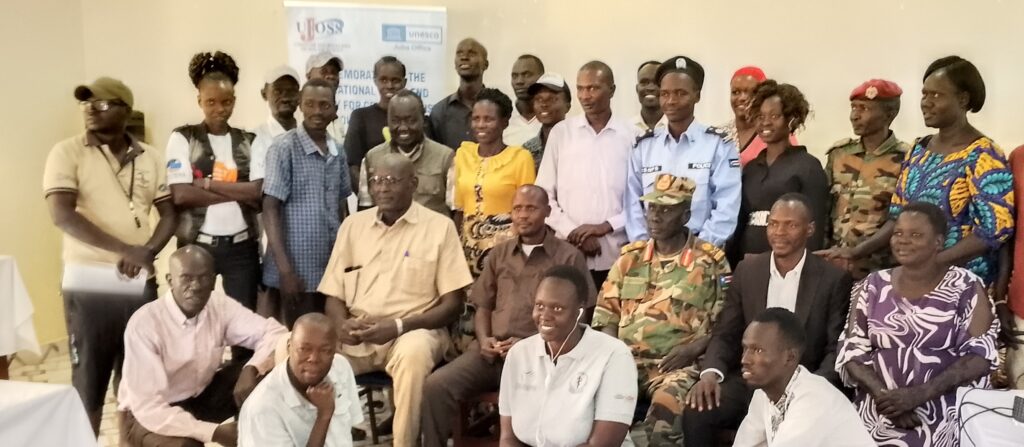Eastern Equatoria State Relief and Rehabilitation Commission (RRC) Chairman Augustine Okuma has decried the lack of funding from the national government to the disaster victims and the emergency response in the local community.
Okuma made the statement during the opening of a four-day emergency preparedness and response training at the subnational level in Torit on Monday.
The training drew over 20 technocrats from the line ministries, including Animal Resources, Agriculture, Local Government, Roads and Bridges, Health, Education, Gender and RRC.
The training aimed at developing government capacity in rapid assessment following occurrence of hazards, to determine the extent of impacts, level of needs and nature of operations.
Eastern Equatoria State Minister of Information and Government Spokesperson Elia John Ahaji said the state was expecting a bigger risk of hunger due to birds destroying crops in most parts.
Ahaji said that due to flooding and crop diseases in the eastern part of the state, the residents were not expecting any good harvest despite having worked tirelessly.
“It is important to bring to this forum that crops are being eaten by the green locusts in parts of eastern Torit. This year, the Governor went on radio and appealed to the people to cultivate. Earlier this year, the birds came and wiped all the dura and then another dry spell came between May and June. It also affected some crops then the rains also came heavily and affected those cultivating on the low lands,” the Minister said.
RRC emergency preparedness and response Team Leader Daniel Thon Deng said the training would explore durable solutions for managing disasters.
“All of us need to have a durable solution to tackling these emergencies and we are delighted with our partners, especially the UN agencies, led by WFP, funding this and it has done so many significant roles in South Sudan. There are so many things coming up to help South Sudan,” said Deng.
“My advice to the leadership is; let us come up with the programs or projects. WFP and other UN agencies will be ready to support,” he said.
WFP’s Samwel Anis said his organization was collaborating with the government to find solutions to the emergency disasters.
“You know our communities are affected by a lot of disasters, especially the floods. We are here together with you and want to learn how we can prevent or reduce these disasters,” he said
The training is expected to develop government capacity in risk monitoring impact-based triggers for stepping up preparedness.




